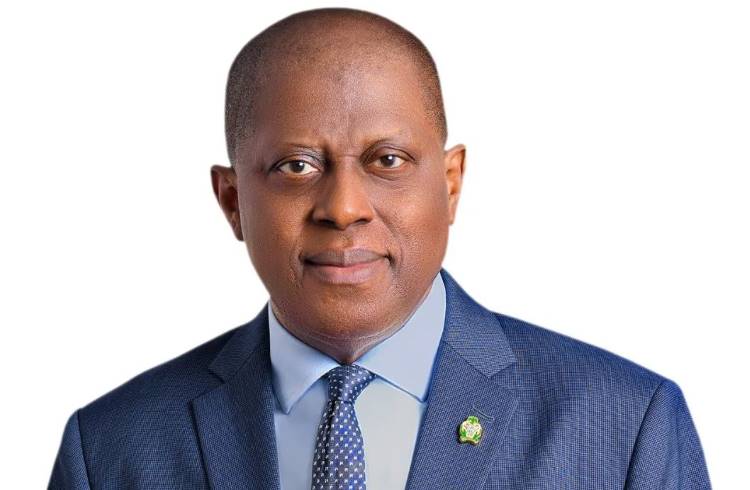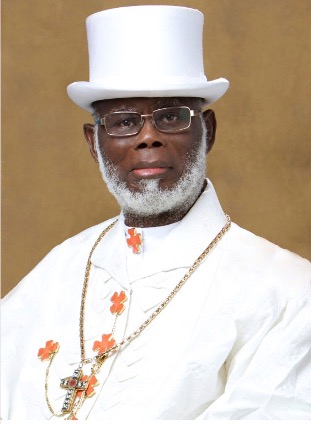By Mustafa Biodun
The Central Bank of Nigeria (CBN)-led Monetary Policy Committee (MPC) will, between Monday July 21 and Tuesday July 22, hold its 301st meeting in Abuja. The meeting presents opportunity for the economy managers to take crucial decisions on moderating interest rate, keeping inflation rate on decline and sustaining exchange rate stability.
Stakeholders have expressed divergent views on the likely decisions of the MPC team. While some expressed confidence that in view of the current moderation in the inflation rate and exchange rate stability, a marginal reduction Monetary Policy Rate (MPR) could be the most likely outcome. For others, the MPC will retain its policy stance despite signs of disinflation and FX stability. Whichever where the pendulum swings, the MPC decision should sustain price and exchange rate stability as well as guarantee continuous FX inflows to the domestic economy.
At its last meeting in May, the MPC team voted to hold the benchmark policy rate at 27.50 percent. The decision reflected cautious optimism amid improving macroeconomic fundamentals. The Committee had noted that narrowing gaps between the official and parallel exchange rates, falling prices of Premium Motor Spirit (PMS), and a favourable trade balance signaled potential easing in inflationary pressures.
Members also acknowledged relative stability in the foreign exchange market and emphasised the importance of sustaining ongoing monetary reforms to reinforce market confidence.
During the May meeting, the MPC had warned that re-inflationary pressures were still significant, arguing that maintaining elevated interest rates was necessary to mitigate those risks. The Committee also raised concerns that any premature rate cut might destabilise the naira, especially as the current FX rate gains have been supported by attractive yields on Open Market Operation (OMO) bills.
For the 301st meeting, analysts at Afrinvest Securities Limited anticipate that the MPC will maintain its policy stance despite signs of disinflation and foreign exchange stability.
They attributed their projection to continued external risks, food supply shocks caused by recent insecurity and flooding, and uncertainties arising from the delayed release of Nigeria’s rebased GDP figures for Q1 2025.
Afrinvest West Africa said inflation could drop as low as 22.2 per cent in June 2025.
“Our view for the inflation projection is hinged on two major drivers. Firstly, the effect of the CBN’s strategic policy reforms has seen the naira strengthen in the month of June, up 3.6 per cent to close at N1,529.71. Secondly, the high base year effect from last year’s 34.2 per cent inflation reading is a contributing factor,” Afrinvest stated.
But Managing Director, Financial Derivatives Company (FDC) Limited, Bismarck Rewane, called for interest rate slash by 25 basis points to 25 per cent.
In emailed note to stakeholders, he said the easing in the interest rate is reinforced by the latest forecast from the International Monetary Fund (IMF), which anticipates inflation will decline in the fourth quarter and further ease to18 per cent in 2026.
He explained the wider implication of a fall in MPR, including reduction of borrowing cost of small businesses and reinvigoration of productive sector.
Rewane’s FDC said inflation is expected to ease to 22.65 per cent in June, from 22.97 per cent.
FDC attributed the reduction to a combination of factors, including a N100 reduction in PMS price, relative stability in the naira exchange rate, and a decline in money supply growth.
FDC, however, expected food inflation to rise by 0.42 per cent to 21.56 per cent from 21.14 per cent. Core inflation is projected to decline by 1.34 per cent to 20.94 per cent from 22.28 per cent.
“The inflation numbers could have been worse if not for the relative stability of the exchange rate,” FDC noted.
FDC noted that further cut in ex-depot price by Dangote Refinery could further exert downward pressure on pump prices and potentially ease inflation.
Analysts at Cordros Securities, said that with the commencement of H2-25, there is need to continue to adopt a cautiously optimistic stance.
“The Gross Domestic Product (GDP) growth is expected to remain robust as economic strains induced by the reforms continue to ease. With domestic inflation expected to continue easing, the Monetary Policy Committee (MPC) may begin to consider a gradual pivot toward monetary easing”.
The analysts, however, said the relatively tight global financial environment and uncertainties stemming from global trade tension and geopolitical instability will likely constrain the depth of rate cuts, as the CBN seeks to maintain the naira’s attractiveness for carry trade inflows.
Echoes from 300th meeting
CBN Governor Olayemi Cardoso said the apex bank is now more than ever, consolidating market gains and ensuring sustained improvement is crucial.
“We will enhance collaboration with the fiscal sector by increasing the depth and regularity of our interactions to drive economic growth. With stabilising forex rates, strengthened price controls, and rising investor confidence, the economy shows strong signs of resilience and recovery,” he said.
Cardoso explained that following positive developments in the FX market, the CBN’s focus on boosting liquidity and maintaining transparency in forex operations is sacrosanct.
“Our Objectives have been and will continue to be, to achieve stability in the Foreign Exchange and the Financial markets. CBN will continue to embrace orthodoxy and stay the course. We remain vigilant and will not take anything for granted, inflation has been too high for too long, and our goal is to bring it down from double digits to single digits in the medium to long term,” he said.
The naira strengthened by 6.95 per cent to N1,510/$ in the parallel market on February 20, driven by exchange rate expectations, subdued forex demand, and sustained CBN intervention.
Businesses, especially real sector operators, applauded the MPC decision to hold rates, so as to sustain naira rally and cut rising cost of borrowing.
These decisions were based on the fact that the Committee anticipates robust GDP growth in the medium term, driven by strong contributions from the non-oil sector. Additionally, the MPC noted the sustained rise in domestic crude oil production (1.74mb/d) and expects an improved contribution from the oil sector, further strengthening overall GDP growth.
The MPC acknowledged the rebasing of the CPI as well as the adjustments in the weights of items in the CPI basket, citing that the new methodology reflects current consumption patterns. Furthermore, the committee expects inflationary pressures to moderate in the near future, helped by a relatively stable naira and gradual moderation in PMS prices.
The MPC highlighted the recent naira appreciation buoyed by improved FX liquidity. The committee also acknowledged the current measures by the CBN to foster transparency and credibility in the FX market, including the implementation of the Electronic Foreign Exchange System (EFEMS) and the Nigerian Foreign Exchange Market (NFEM) FX Code.
The Committee expects the sustained policy initiatives to improve Foreign Direct and Portfolio investments as investors’ confidence increases. The MPC also highlighted that the increased domestic crude oil production is expected to improve the current account balance and support FX reserve accretion.
On the global scale, the committee noted that while the Russia-Ukraine war and Middle Eastern conflicts remain downside risks to global GDP, potential resolutions could emerge following policy actions by the new US administration. Additional risks include a possible global trade war driven by US tariff hikes, which may heighten inflationary pressures and weigh on global growth. However, the MPC highlighted that the IMF has maintained its global GDP growth forecast at 3.3 per cent for both 2025 and 2026.
Views from stakeholders
Looking ahead, analysts at Cordros Securities expect future MPC decisions to be primarily influenced by developments in the FX market and the trajectory of inflation. “While a potential rate cut could be considered at the May policy meeting, we anticipate a gradual approach aimed at balancing exchange rate stability with the anticipated disinflationary process,” they said in emailed notes to investors.
Analysts said that before the MPC meeting, market participants had already begun re-pricing yields downward despite the tight liquidity conditions in the financial system.
Rewane said global and domestic economic landscape is shifting, and Nigeria’s policymakers are navigating treacherous waters. Balancing risks remains delicate – tighten too much, and suffocate growth; ease too soon, and inflation spirals.
“In its first meeting in 2025, held on February 19-20, the Monetary Policy Committee (MPC) finally hit the pause button on interest rate hikes after 12 months of an aggressive tightening campaign. The restrictive stance saw the policy rate peak at 27.5 per cent per annum, pushing maximum lending rates above 30 per cent per annum. Markets perceive this move as the beginning of a more accommodating stance as the yield curve inverted, especially at the short end following the rate decision,” he said.
Speaking on the MPC decisions, the Research Head, Cowry Asset Management Limited, Charles Abuede, said the MPC is treading cautiously. “The committee should remain focused on maintaining price stability, especially as inflationary pressures persist despite previous rate hikes.
Abuede said a lower inflation print is prompting the MPC to prioritise economic growth over further tightening, particularly as other macroeconomic indicators suggest easing cost pressures. He said the MPC is gradually relaxing on the tightening of the monetary policy.
He said despite the well known disposition of the central bank, the reality of the moment required that rates be held.
Other analysts agreed that there has been some stability in the exchange rate, having regard to the fact that there is already what can regarded as an overdose of monetary policy tightening instruments.
They said: “Monetary Policy Rate (MPR) were already at around 27.5 per cent and the Cash Reserve Requirement (CRR) is already at 50 per cent, which are practically the limits that monetary policy can be pushed for now.
Interest rate now for many businesses is over 35 per cent, and it should not get worse than that. “We need to tackle food inflation which is a major factor in our current inflation. So, we need to do a lot more in the area of development finance, why the CBN continues to pursue is the orthodox monitoring policy,” he stated.
More so, analysts from the Nigeria Economic Summit Group said easing of inflation was also expected to influence monetary policy. They predicted that the CBN’s Monetary MPC may adopt a more accommodative stance in late 2025, potentially lowering interest rates to stimulate economic activity.
This shift would mark a departure from the previous tight monetary policy regime aimed at controlling inflation.
CBN’s policies, including the exchange rate unification, have led to significant foreign capital inflows to the economy while reducing its intervention in the forex market. The floatation of the naira and the clearing of over $7 billion FX backlog improved the country’s outlook with foreign investors as well as multilateral organisations, like the World Bank, describing it as bold intervention to improve the economy’s sustainability in the long run.


















Leave a comment